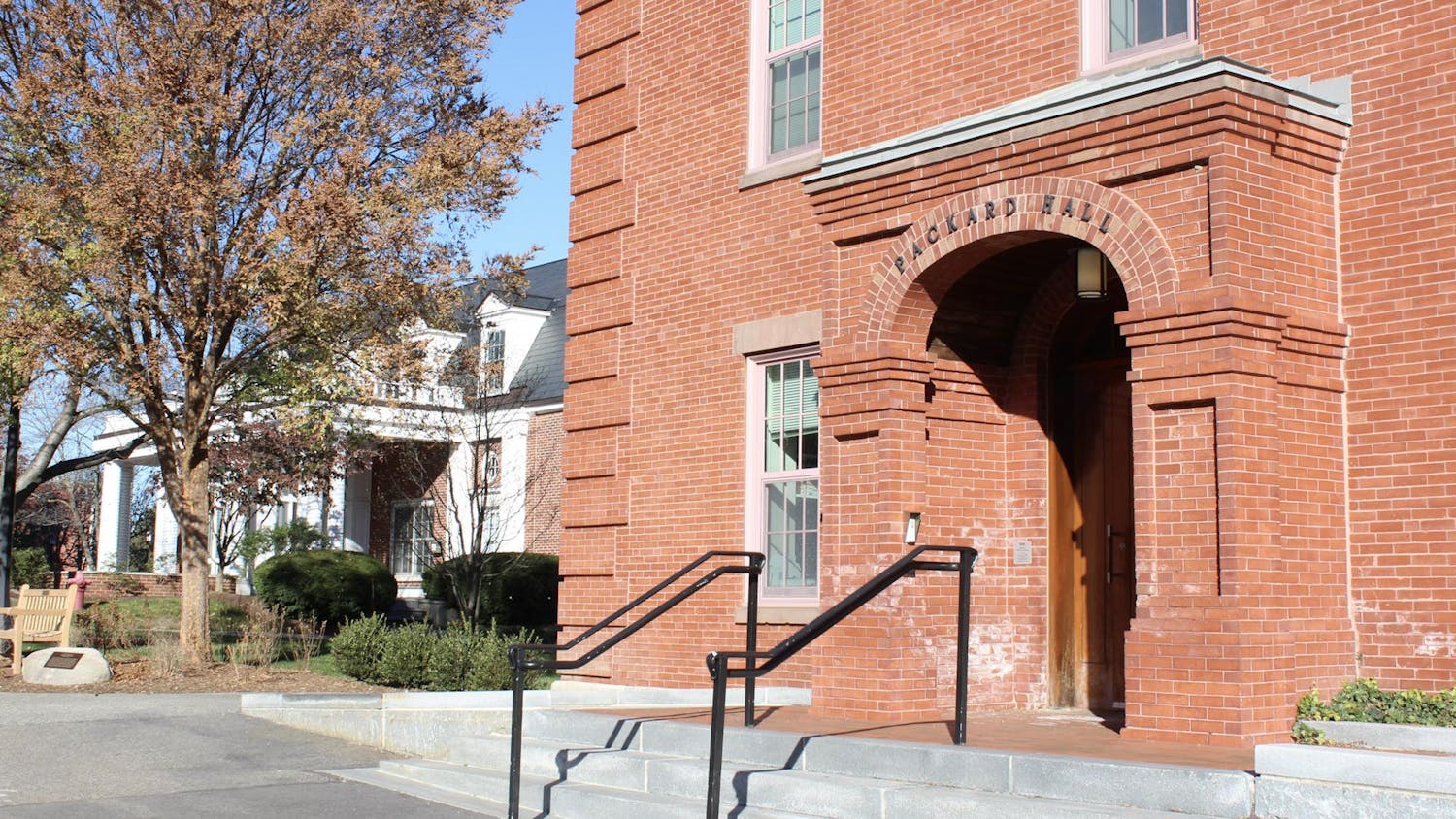The chair of the Department of Computer Science was nominated last month by President George W. Bush to serve on the National Science Board (NSB), a high-ranking group of experts who advise the president and Congress on scientific policy.
Professor Diane Souvaine, who specializes in computational geometry, is one of seven nominees selected from the nation's scientific elites to join the 24-person NSB for a six-year term, pending confirmation by the U.S. Senate. The White House announced the nominations on Sept. 16.
"It's a tremendous honor for her and for Tufts," said Lenore Cowen, an associate professor of computer science. "It's a huge responsibility to work with the NSB, and I expect she will give the president and the country some much-needed advice."
The NSB, which Congress established in 1950, oversees the activities of the National Science Foundation (NSF) in addition to dispensing policy advice.
The NSB's regular publications on the state of science and engineering in the United States are the "gold standard" of scientific reports, Lisa-Joy Zgorski, an NSF spokesperson, told the Daily.
The board is composed of the "preeminent group of scientists in the country," Zgorski said. Its members convene five times a year to discuss timely scientific issues.
"The two dozen members of the NSB … are all elite in their field," Zgorski said. "The members are so smart, and they all respect each other. It's really a great system."
Souvaine's research includes work in the field of computational geometry, the study of how computer algorithms can be used to solve geometric problems. She also holds an appointment in the math department, and served from 1992 to 1994 in leadership positions for the NSF's Science and Technology Center on Discrete Mathematics and Theoretical Computer Science.
"Personally, I'm very impressed with her," said Zgorski, who spoke with Souvaine prior to the professor's nomination. "With only 24 members, one person can wield a big influence, and I'm excited to see what she does. She is highly qualified, and she will be joining a group of high-quality individuals. She'll be in good
company."
Souvaine declined to go into detail about her nomination or to explain what she hopes to accomplish on the NSB because the Senate has not yet confirmed her nomination.
As for what she hoped to focus on as an NSB member, "It is too early to tell," she said in an e-mail.
As the Senate prioritizes its obligations, confirming NSB nominees could be pushed to the bottom of the list, especially considering the recent battle over whether to bail out financial companies, Zgorski said.
"It's all about timing," she said. "With all the problems in the world right now, it's possible that the nominees may not be confirmed for a while. It might not happen this year."
Souvaine said she found out that the president was considering her for the NSB in early spring of this year.
Zgorski said she could not recall any instance where the Senate has rejected a nominee, but she said there are no guarantees in the process of confirmation.
"I'd say confirmation is more of a ‘when' rather than ‘if' issue, but it's not a bird in the hand, if you will," she said.
Even though Souvaine leads the computer science department, she did not enroll in her first computer science class until she was a graduate student at Dartmouth University.
That class, a "crazy course in computer organization," and its challenging final exam sparked Souvaine's interest in the subject, she said.
"Perversely, [the final] was fun," Souvaine said, explaining that the test consisted of the complete design of a computer simulation.
Souvaine went on to pursue a career in computer science and came to Tufts in 1998 as an associate professor.
Bush selected the nominees, but Zgorski believes it unlikely that the candidates' political affiliations were a major factor in his decision.
"I would never presume to speak for the president," Zgorski said, "but I think the Bush administration acknowledges that scientific achievements trump political views here."
Associate Professor of Computer Science Anselm Blumer said that regardless of politics, Souvaine is an excellent choice for the NSB.
"I've known her since she interviewed for a job here. She's very proactive and energetic," Blumer said. "She's always looking for ways to make computer science more interesting to more people."





